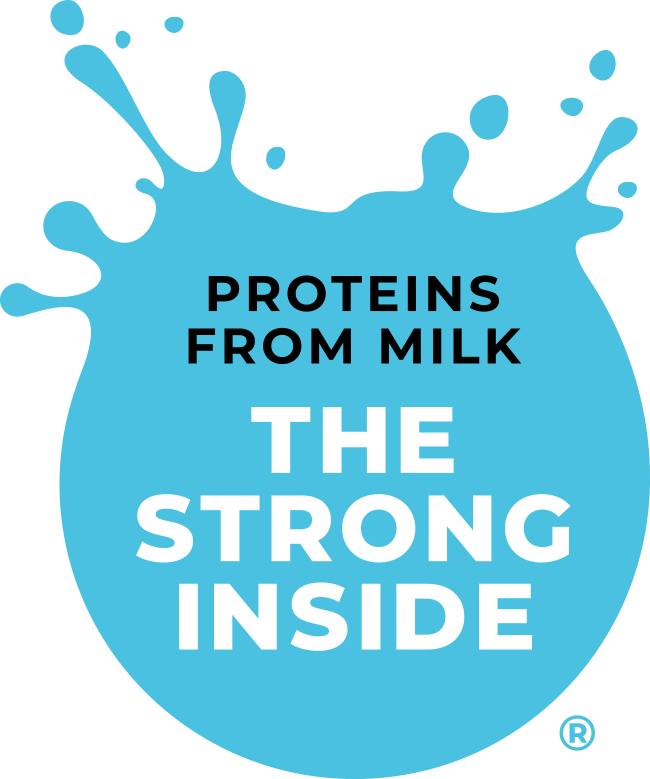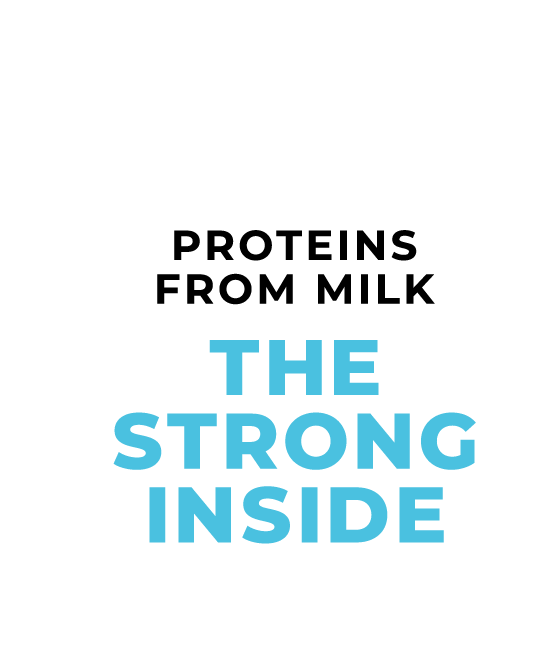Whether you’re prepping for a quick workout or a long conference call, proteins from milk can help you power through your to-do list. Proteins from milk help support muscle strength and function, to keep you stronger during the day, and proteins such as whey, caseins, and other obtained from milk support daily exercise, which increases metabolism and contributes to longevity for a longer, healthier life. But the benefits from proteins from milk extend way beyond your muscles.

Proteins from Milk Are the Building Blocks for a Healthy Lifestyle

Research has shown that proteins from milk may:
Help manage blood glucose 1 2
Have a positive impact on blood pressure 3
Help protect your health and reduce cardiometabolic risk factors 4 5
Keep you strong and active as you age 6 7
Help promote a strong immune system 8
Protect the health of active individuals
1 King, DJ, et al. 2018. A small dose of whey protein co-ingested with mixed-macronutrient breakfast and lunch meals improves postprandial glycemia and suppresses appetite in men with type 2 diabetes: a randomized controlled trial. Am J Clin Nutr. Apr 1;107(4):550-557.
2 Lagrange, V and Clark, D, 2019. Nutritive and therapeutic aspects of whey proteins. pp.549-570. Chapter in Whey Proteins, from Milk to Medicine. Elsevier.
3 Visioli, F and Stata, A. 2014. Milk, dairy products, and their functional effects in humans: a narrative review of recent evidence. Adv Nutr. 2014 Mar 1;5(2):131-43.
4 Fekete, AA, et al. 2018. Whey protein lowers systolic blood pressure and Ca-caseinate reduces serum TAG after a high-fat meal in mildly hypertensive adults. Sci Rep. Mar 22;8(1):5026.
5 Baer, D, et al. 2011. Whey Protein but Not Soy Protein Supplementation Alters Body Weight and Composition in Free-Living Overweight and Obese Adults. J. Nutri. 141, 1489-1494.
6 Tome, D 2017. Muscle Protein Synthesis and Muscle Mass in Healthy Older Men. The Journal of Nutrition, Volume 147, Issue 12, 2209–2211.
Van Loon, LJ, et al. 2015. The Skeletal Muscle Anabolic Response to Plant- versus Animal-Based Protein Consumption. J Nutr. Sep;145(9):1981-91.
7 Miller, PE, et al. 2014. Effects of whey protein and resistance exercise on body composition: a meta-analysis of randomized controlled trials. J Am Coll Nutr.; 33(2):163-75.
8 Mann, B, et al. 2019. Bioactive peptides from whey proteins. pp. 519-538. Chapter in Whey Proteins, from Milk to Medicine. Elsevier.

